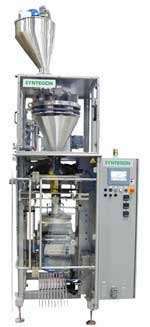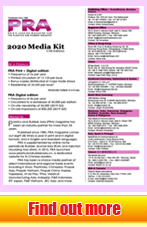Packaging Sector: ExxonMobil collaborates on sustainability initiatives for India
Sustainability has grown in importance in India, especially in the last few years. With the publishing of the Plastic Waste Management Rules (PWMR) by the Indian government that include phasing out the manufacture of non-recyclable or non-energy recoverable or multi-layer plastics (MLPs), materials company ExxonMobil took up the challenge of replacing MLPs with recyclable* full polyethylene (PE) laminated solution in a collaboration with Indian firms. PRA found out more about this collaboration below.
PRA: How did the collaboration between ExxonMobil and Shrinath, Syntegon come about? What packaging requirement gap has the collaboration been able to fill?
Ever since the Indian government published an amendment in the Plastic Waste Management Rules (PWMR) about phasing out non-recyclable multi-layer plastics (MLPs), there have been efforts made by the industry to develop alternatives that are recyclable, one of them being full PE laminate structures. However, when moving to full PE solutions, multiple hurdles were faced such as:
- Significant drop in packaging line speed
- Unsatisfactory optics
- Distortion in seal area and seal integrity issues
- Change in sealing parameters

Realising these challenges, ExxonMobil took the lead in identifying the most appropriate value chain partners and synergistically combining their expertise in conversion capabilities (Shrinath), the latest packaging machine technology (Syntegon) and innovative formulations (ExxonMobil). The objective of this collaboration was to achieve full PE laminate solutions which can easily be used by brand owners for non-barrier applications such as salt, detergent and wheat flour packaging. The above challenges were overcome by creating a full PE laminate solution, including Exceed XP, Exceed, Enable performance PE polymers and Exact plastomers that delivered packaging speeds up to 65 packs/minute, good optics and eliminated any sealing issues.
PRA: India will introduce measures to reduce plastics use in the country by 2022, but may exclude multilayer packaging. How will this situation boost PE laminated materials in packaging?2
Plastics help deliver the safe production, distribution and preservation of food and water. A recent study found that in the consumer goods sector, alternatives such as glass, aluminium and paper can have nearly four times the environmental impacts of plastics on a full lifecycle basis, because of production, transportation, and end of life environmental burdens associated with the additional weight of alternative materials required to provide the same function as plastics.1 Of the plastic packaging options, flexible packaging is a very good choice for doing more with less. The flexible packaging industry is one of the fastest growing industries in India with a growth rate of 10%. This growth is attributed to the growing middle class and increasing consumption of packaged foods.
Various groups and organisations are actively pursuing initiatives to push waste management
practices toward the top of the plastic waste management pyramid. An intermediate target is to find ways to reduce the use of landfills and incineration and move toward more recycling and reuse (as well as reduction)3. Further, major brand owners have made commitments to move to a certain percentage of recyclable plastic packaging within a certain timeframe. Therefore, even though the 2018 amendment of PWMR has given options for recyclability and energy recovery (states that “MLPs that are non-recyclable, nonenergy recoverable or with no alternative use have to be phased out”), recyclability has the greater potential. One of the ways to achieve this is through full PE laminate solutions.
PRA: What do you think will be the impact of India’s product policy on plastic manufacturers and processors in India? Will the extended producer responsibility (EPR) impact collaborations with local producers?
Full PE laminate solutions are recyclable in communities where programmes and facilities to collect and recycle plastic films exist. As per PWMR, Extended Producer Responsibilities (EPR) refer to the establishment of waste collection systems by MLP producers and brand owners.
ExxonMobil is taking action to address plastic waste by increasing plastic recyclability, supporting improvements in plastic waste recovery – for example, through our founding membership in the Alliance to End Plastic Waste – and prioritising the elimination of unnecessary waste from our operations to increase efficiency and minimise potential impacts to the environment.4
(PRA)
Subscribe to Get the Latest Updates from PRA Please click here
©2020 Plastics and Rubber Asia. All rights reserved.

©2020 Plastics and Rubber Asia. All rights reserved.
Home Terms & Conditions Privacy Policy Webmail Site Map About Us



















